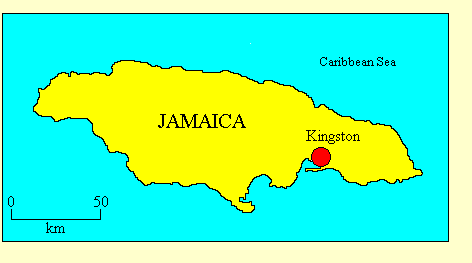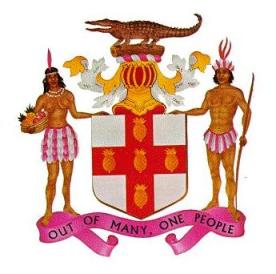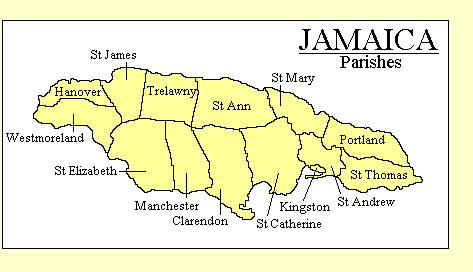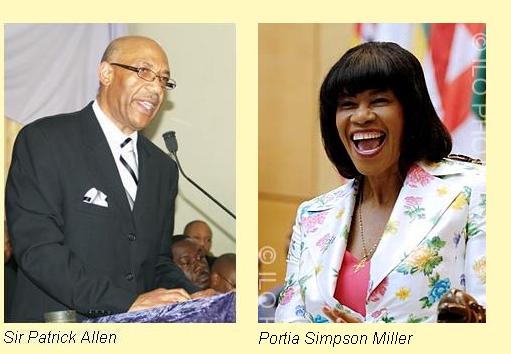

JAMAICA
• Official name: Jamaica
• Location: Caribbean
• International organisations: African, Caribbean and Pacific Group of States, Commonwealth of Nations,
Non-Aligned Movement, Organisation of American States, United Nations, World Trade Organisation
• Borders: None
• Coastline: Caribbean Sea
• Land area: 10,991 Km2
• Population: 2,800,000
• Annual GDP (PPP) per capita: US$8,200 (2009 CIA estimate). World ranking: 93
• Ethnicity: More than 90% of the population is wholly or predominantly of African
descent. There are small minorities of Europeans, Indonesians, Indians and Chinese.
• Languages: English is the official language and is generally understood. Most of the
population speaks a local creole called Patois or Patwa.
• Religion: Christian 65% (Protestant 61%, Catholic 4%), local or African-derived religions 35%.
• Form of government: Parliamentary democratic republic. Jamaica is divided into 14
parishes.

• Capital: Kingston
• Constitution: The
Constitution of Jamaica came into effect on 6 August 1962.
• Head of state: Queen Elizabeth II, Queen of Jamaica. The Queen came to the British
throne on 6 February 1952, and has held the title Queen of Jamaica since 6 August 1962.
The Queen's functions in Jamaica are excercised by a Governor-General, appointed by the
Queen on the advice of the Prime Minister. The current Governor-General,
Sir Patrick Allen
took office on 26 February 2009.
• Head of government: The Prime Minister, appointed by the Governor-General. The
Prime Minister is the leader of the largest party in the legislature and
is accountable to it.
• Legislature: Jamaica has a bicameral legislature, the
Parliament.
The House of Representatives has 60 members, elected for five-year terms from single-member
constituencies. The Senate has 21 members, 13 appointed by the Prime Minister and
eight appointed by the Leader of the Opposition.
• Electoral authority: The Electoral Office of Jamaica
administers national elections
• Freedom House 2011 rating: Political Rights 2, Civil Liberties 3
• Transparency International Corruption Index: 33% (87 of 178 countries rated)
• Reporters Without Borders Press Freedom 2010 Index: 92.3% (25 of 178 countries rated)
• Heritage Foundation Economic Freedom 2010 Index: 65.7% (58 of 179 countries rated)
Political history
Jamaica was discovered by Columbus in 1494 and claimed for Spain, but the island was
seized by the English in 1655 and became the main British base in the Caribbean for
300 years. The English brought African slaves to Jamaica and they soon became the majority
of the population. Slavery was abolished in 1807 but the island continued to be ruled by a
small group of English planters. In 1866 there was a serious African revolt, which led to reforms in
the government of the country.

In 1944 a constitution was introduced and progress towards self-government continued
until independence in 1962. Jamaican politics has always been dominated by conflict between two
parties, the conservative Jamaica Labour Party of the
first prime minister, Sir Alexander Bustamante, and the socialist
People's National Party, led first by Norman
Manley and later by his son Michael Manley.
In 1972 the PNP under Michael Manley gained power and introduced a radical
socialist policy, also allowing greater Cuban influence in the country. The resulting
economic difficulties led to the PNP's defeat by the JLP under Edward Seaga in 1980. The
PNP returned to power on a more moderate platform in 1989 and held office until August 2007,
when the JLP, now also a more moderate party returned to office under Bruce Golding. Golding retired
in October 2011 and was succeeded by Andrew Holness. Holness immediately sought a mandate of his own
at snap elections in December, but was defeated by the PNP's
Portia Simpson Miller, who had previously
been PM in 2006-07.
Freedom House's 2011
report on Jamaica
says: "Jamaica is an electoral democracy... Powerful criminal gangs in some urban neighborhoods maintain
influence over voter turnout in return for political favors, which has called into question the legitimacy
of election results in those areas. Corruption remains a serious problem in Jamaica...
The constitutional right to free expression is generally respected... Freedoms of association and assembly
are generally respected... A growing backlog of cases and a shortage of court staff at all levels continue
to undermine the justice system... In 2010, Human Rights Watch reported that security forces had carried
out extrajudicial killings during the search operation for alleged drug trafficker Christopher "Dudus"
Coke... Violence against gay, lesbian, and transgendered individuals remains a major concern."
Updated January 2012
|


